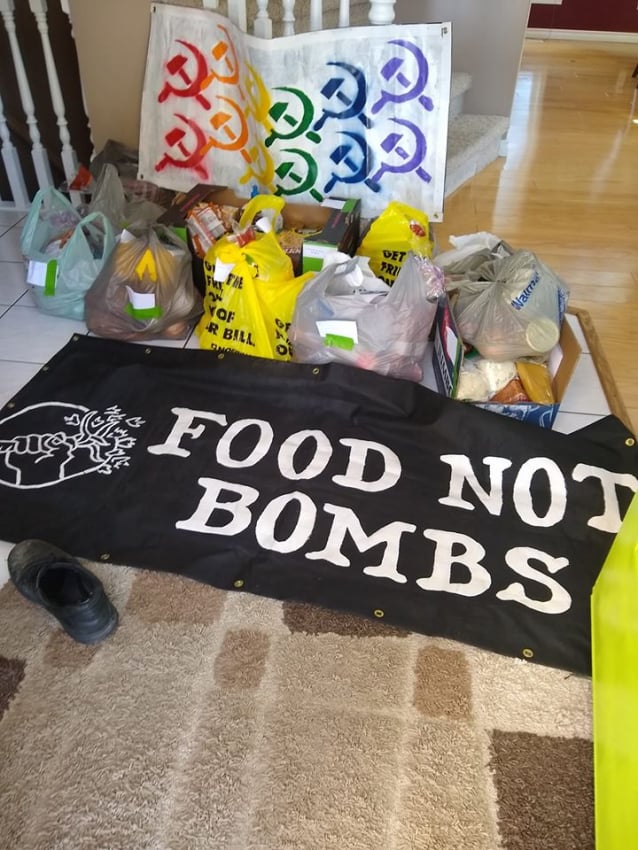
Food Not Bombs is a volunteer organization with numerous autonomous chapters across the world that strive to address food justice issues.
The organization first began in 1980 in Cambridge, Massachusetts, when a group of young anti-nuclear war activists held a bake sale to raise money for the legal costs of a group member who had been arrested for protesting.
They were inspired by a poster they saw that said, “it will be a great day when our schools get the money they need and the air force has to hold a bake sale to buy a bomber.”
One member of the group worked at a grocery store, and of the produce they couldn’t sell, the store began donating it to people living in some nearby housing projects. Across from the projects stood a building where scientists worked designing nuclear missiles. This inspired the name Food Not Bombs and the movement was born.
Ryan Mitchell, treasurer of the Saskatoon chapter of Food Not Bombs, believes that we have enough funds to help people who are going hungry, but they’re being spent in the wrong places. The government spends millions on war machines while there are hungry people to feed at home.
The Saskatoon chapter has been operating since February 2017, but there have been some big changes to the group since the beginning of the COVID-19 pandemic. Though they originally provided hot meals, they have switched to a delivery service.
“We were more of a punk rock soup kitchen prior to the COVID-19 crisis,” Mitchell said. “But [we have] changed tactics to better maintain social distancing while still providing necessities to the community through this crisis.”
Instead of making soups, FNB now delivers groceries to people who are self-isolating, have low income or have been laid off due to the crisis.
Mitchell says that the Saskatoon chapter is a big tent leftist organization, meaning that the members of the group have many different beliefs. However, there are some sentiments that they all share.
“We all agree that food justice and the current crisis is a political problem that capitalism has failed to address,” Mitchell said.
Though providing food is the organization’s main goal, other chapters also focus on animal and environmental rights. Mitchell believes that the Saskatoon chapter has elements of both of these beliefs but mostly they focus on “the redistribution of wealth from the few to the many.”
Though COVID-19 threw a wrench in their typical order of things, FNB Saskatoon’s speedy remodelling to suit the crisis proves their dedication to the cause.
In response to the crisis, Mitchell thinks that there are specific issues at the root of the turmoil the virus caused
“It seems self-evident now more than ever that we all should be committed to justice and solidarity, and that we recognize that it is the interests of rich people that stand in the way of that,” Mitchell said.
“To that end, Food Not Bombs recognizes that Canada is a settler, colonial project and we exist on stolen land, and thus we stand in solidarity with all Indigenous peoples whose territory is being infringed upon without their consent.”
Though the group is available to all, Food Not Bombs encourages those who are healthy and able to contact the Saskatoon Food Bank first before reaching out to them. Food delivery is free of charge and 100 per cent community-funded.
—
Tomilola Ojo | Culture Editor
Photo: Food Not Bombs | Facebook
Leave a Reply